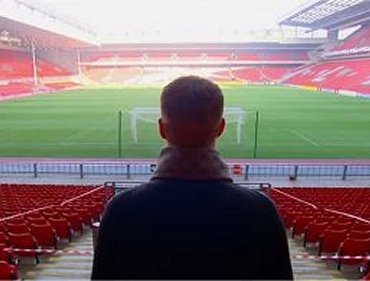
A LEAGUE OF IT'S OWN
The transformation of football reflects the currents of wider society and offers a challenge to the Church
Thirty years ago English football was in the doldrums. 1985 was the year scores of fans lost their lives in Bradford and Brussels, through fire and hooliganism. Attendances hit a new low, grounds were decrepit and in need of an overhaul that it took the Hillsborough disaster to supply four years later. There was a prevailing gloom about the game and contempt for the average fan which branded him – and it was almost always him – as loutish and uncouth.
Gratuitous and offensive racism and sexism were rife. The Prime Minister of the day disliked football and did not understand its breathing rhythms. The game was a microcosm of British life in a year of urban riots, miners’ strikes and manufacturing decline. A new Britain may have been emerging, but it was a painful and slow process.
This narrative is unrecognisable today; the game has gone through several iterations beginning with the Taylor Report into safety at football grounds following Hillsborough; structural reform introducing the Premier League; media exposure via Sky TV; and cultural change initiated by Italia 90. Two particular books from this era broke out of the game’s confines into wider public consciousness: Pete Davies’ All Played Out about England’s 1990 World Cup tournament and Nick Hornby’s Fever Pitch each explained in literary English what it meant to be a die hard football fan.
Daniel Goldblatt has written a wonderful account of the renewal of English football in The Game of Our Lives, (Penguin 2015), a narrative that has been waiting to be told. Football continues to hold up a mirror to British culture. It is wealthier than before but much more unequal. Money rules and only a small handful of clubs can expect to be able to pay the wages to get the players to win the titles that fans expect. Those fortunate enough to be bankrolled by Russian or Arab billionaires may sometimes conveniently ignore this truth, but, like much in wider society, the odds are stacked heavily in favour of those who already have. Those clubs patronised by mere millionaires are left languishing in their wake and often plagued by an array of dodgy chancers with delusions of the grandeur afforded by ownership. The days when clubs could be built up from humble origins by strong, charismatic characters like Matt Busby, Bill Shankly or Brian Clough are long over; romance is largely extinguished.
And yet the game continues to beguile and attract an audience for whom belonging is as important as winning. Goldblatt eschews the easy comparison between organised religion and football culture. Football may appear to be a substitute for the rituals of faith, but its narratives of suffering, redemption, victory, symbol and sacrament, friend and foe are, in his view, a pale and insubstantial reflection of the deeper meanings of historic religion. Yet anyone who has observed the scene five minutes before kick-off at Anfield or several other distinguished grounds might perceive elements of an alternative faith.
Football has not deserted the working classes, but its renewal has left many of its fans out of pocket, helping to pay absurdly high salaries to narrowly talented young men. The same could not be said of the Church of England. It didn’t desert the working classes; it never held them in the first place. Some respect for the ability of football to maintain its links is called for and there is learning to be had from its common life.
Goldblatt notes that attendance at football matches is still a quarter of a million lower than average weekly attendances in the Church of England. Imagine how much greater would be the publicity of faith if churches could hold the back pages and colour supplements like football. Comparative numbers would seem to justify this, but we are living in a different world now, one where meanings and stories, heroes and villains are made and found on the playing fields of England
POPULAR ARTICLES

Obama's Covert Wars
The use of drones is going to change warfare out of all recognition in the next decades.

Through A Glass Starkly
Images of traumatic incidents caught on mobile phone can be put to remarkable effect.

What Are British Values?
Is there a British identity and if so, what has shaped the values and institutions that form it?


